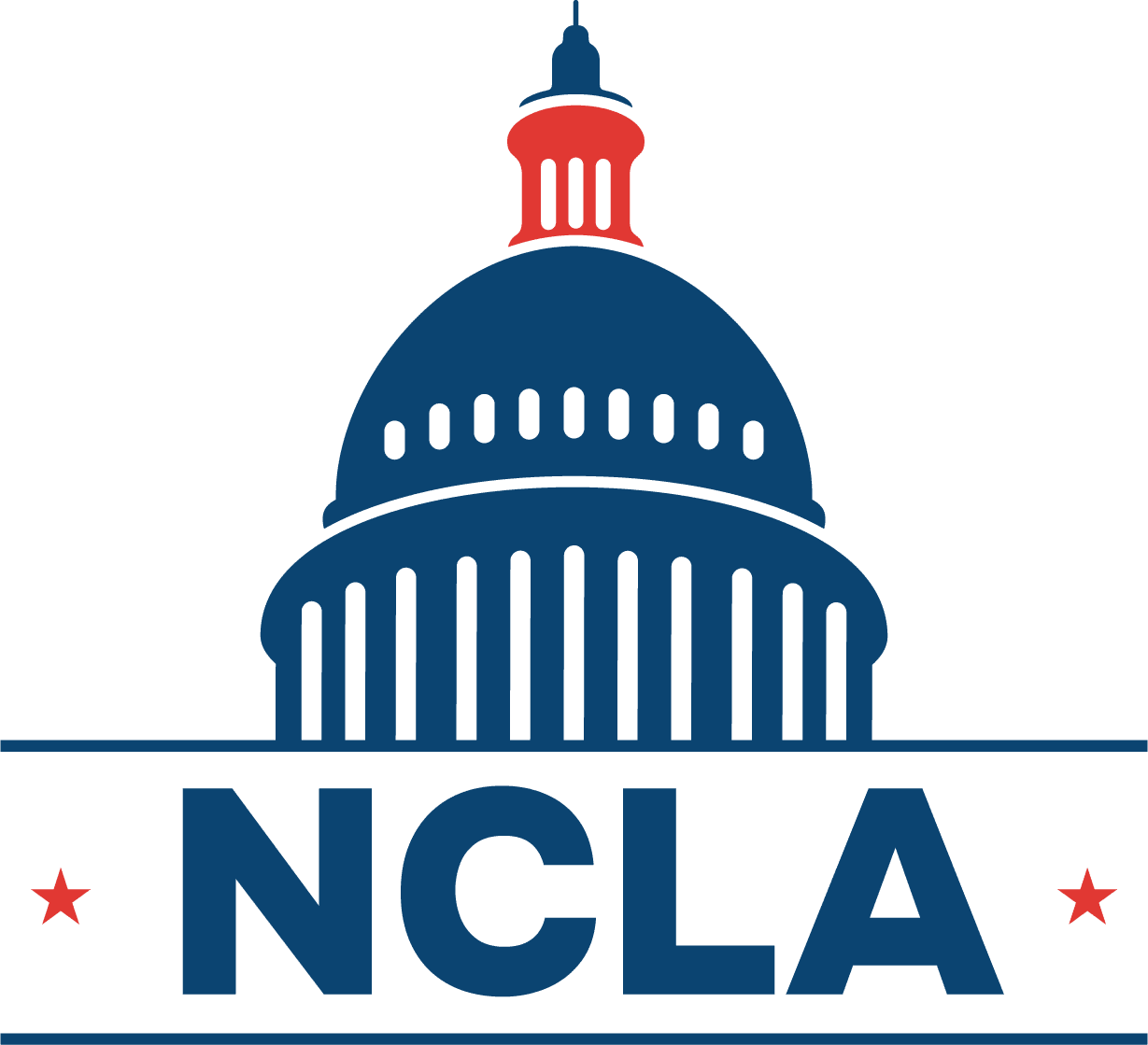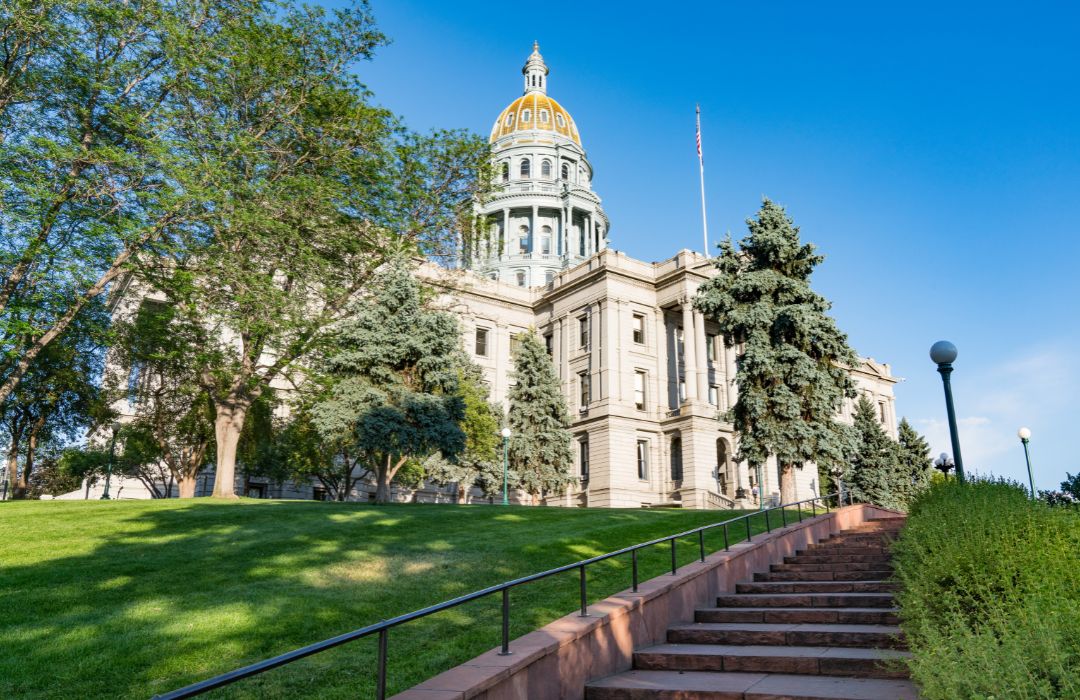This report provides an analysis of the session’s key business-related legislation, political dynamics, and implications for Northern Colorado businesses.
Governor Polis Vetoes Labor Peace Act Overhaul
Governor Jared Polis has officially vetoed Senate Bill 5, the controversial measure that would have eliminated the second organizing election required for union security under Colorado’s Labor Peace Act. This decisive action, announced on May 16, represents a significant victory for the business community, which mounted an intensive advocacy campaign against the legislation.
The Labor Peace Act has stood as a unique cornerstone of Colorado labor law for over 80 years, requiring a second election with at least 75% approval before unions can negotiate to collect fees from all employees’ paychecks. Colorado remains the only state with this two-election requirement, striking a balance between right-to-work and right-to-organize states.
NCLA joined a coalition of business organizations formally requesting the veto. More than 1,000 workers who opposed the legislation signed a letter to the Governor requesting the veto. Throughout the legislative process, employer groups offered compromise proposals that would have eliminated the second election if roughly two-thirds of workers approved unionization at the initial vote, but the overtures were not reciprocated by labor interests.
Political Landscape
The 2025 legislative session was marked by record breaking budget shortfalls and unprecedented tension between Governor Jared Polis and the Democrat majority in the House and Senate. Democrats in the legislature exhibited an unusual willingness to defy the governor on several key issues, pushing legislation forward
despite clear veto threats. This dynamic played a significant role in the session’s outcomes, particularly evident in the contentious debates over the Labor Peace Act overhaul and artificial intelligence regulations.
The Colorado Senate continued to serve as a critical backstop for business interests, with its more moderate Democratic caucus blocking several anti-business bills. While the moderate caucus shrank slightly following the 2024 elections, it remained influential enough to halt efforts that would have placed additional restrictions on businesses. On business matters, the Colorado House moderated from its more radical progressive slant of the prior four years to provide a venue for more pragmatic debate.
NCLA Key Priorities and Wins Construction Defects Reform
Among its highest legislative priorities, the NCLA sought to stimulate the construction of attainably priced condominiums, which have declined to just 3% of new housing stock due to builders’ and insurers’ concerns about litigation risks. With median housing costs now reaching $550,000 in Colorado and the median age of first-time homebuyers rising from 35 to 38 last year, House Bill 1272 was introduced by Fort Collins’ State Representative Andrew Boesenecker, Representative Shannon Bird and Senate President James Coleman, with NCLA’s support, to finally deliver meaningful construction defects reform.
Plaintiff’s lawyers pushed for and secured amendments to the measure in the House that undermined the objective causing the NCLA to move to an “amend” position on the measure as it moved its way to the Senate and ultimately we moved to an oppose position when the bill failed to improve upon passage by the Senate.
The bill creates a voluntary program allowing builders to obtain greater protection from lawsuits in exchange for guaranteed warranties and the use of third-party inspectors. The Colorado Association of Home Builders, with whom we concur, expressed concerns that the bill’s provisions may be simultaneously too vague and too prescriptive in different sections, potentially limiting builder participation. Additionally, some provisions allowing attorney’s fees and maintaining broad conditions for lawsuits may not sufficiently reduce insurance premiums for condominium construction.
The primary aim of HB 1272 “reform” was to addresses a critical aspect of the state’s housing affordability crisis.
Governor Polis signed the bill on May 13 and issued a directive to the state demographer and Department of Local Affairs to track builder participation in the program and resulting unit construction. This tracking mandate acknowledges industry and NCLA concerns that the bill might not go far enough to encourage substantial condominium development.
Oil and Gas Stability
For the first time in many years, legislators did not impose any major new emissions-reduction requirements on industry or add significant new regulations on the oil-and-gas sector. This is chalked up as a win for NCLA as it represents a continuation of the stability achieved in the 2024 deal struck between the sector, environmental organizations and the Governor.
Nuclear Energy
A significant victory for northern Colorado was the passage of HB 1040, which declared nuclear fission to be clean energy, opening that sector to new funding and helping the state compete to attract small modular reactors. This development holds particular promise for Weld County, potentially positioning the region as a hub for next-generation nuclear energy development.
Emissions and Decarbonization
Legislators rolled back decarbonization mandates on the struggling commercial-building sector and the NCLA joined our business partners in the successful defeat of bills that would have required large corporations to report even their hard-to-calculate scope-three emissions, as well as legislation that would have attached warning labels to gas pumps regarding environmental damage. Disappointingly, while a measure to quantify the impact upon workforce from air quality regulations passed the difficult House Energy Committee, it was stymied in the House Appropriations Committee. Expect its return in 2026 with NCLA’s continued support.
Tax Credit Expansions
Despite facing a $1.2 billion budget shortfall, business leaders helped secure expansions of tax credits for advanced-industry investment and business conversion to employee ownership, plus a new tax credit to attract the Sundance Film Festival. Business opposition also played a decisive role in substantially weakening a bill that sought to eliminate tax breaks for insurers’ regional home offices, software sales, and some investments in enterprise zones.
Regulatory Reform
NCLA joined our business group partners in achieving victories in regulatory reform. Senate Bill 306, which passed with unanimous support in both chambers, will require audits of the fee-funded Unemployment Insurance Division and the Air Pollution Control Division, which oversees a disproportionate share of new air-quality regulations. Senate Bill 254 implements mandatory reporting by the Air Pollution Control Division on steps being taken to reduce permitting times, which currently average 459 days.
Significant Challenges and Ongoing Battles
Colorado Labor Peace Act
The most contentious business-related legislation of the session was Senate Bill 5, which would have eliminated the second organizing election required for union security under Colorado law. The bill would have removed the requirement that at least 75% of employees voting in a second election approve efforts for a union to seek collective-bargaining fees from all employees’ paychecks.
Governor Polis confirmed on May 8 that he planned to veto Senate Bill 5, consistent with his position throughout the legislative session that he would not sign a measure eliminating the second vote under any circumstances. The legislature sent him the bill anyway. The Governor fulfilled his promise with his May 16 veto.
Despite this victory, the battle over labor issues is far from over. Colorado Worker Rights United, a coalition of approximately 80 unions and community organizations, has begun collecting signatures for a 2026 ballot initiative that would require employers to give just cause before firing workers. Currently, only Montana has such a law, and the Colorado proposal contains fewer exemptions than Montana’s law.
Initiative 43, filed on March 7 with the Colorado Secretary of State’s office, would require companies with at least eight employees to justify any suspension or discharge of a private-sector worker in writing within seven days. Workers employed at the company for at least six months who believe they were disciplined or let go without cause could file civil lawsuits seeking reinstatement, back pay, front pay, attorneys’ fees, and “any other equitable relief the court deems appropriate.”
Employment attorneys have warned that passage of such an initiative would expose Colorado employers to potential lawsuits from any terminated employees and make the state significantly less attractive for business relocation or expansion.
Workers’ Compensation (House Bill 1300)
House Bill 1300, which significantly expands the number of providers injured employees can choose from for workers’ compensation care, passed the legislature but faces potential veto. Insurers and employer attorneys, with business organizations including the NCLA are urging Governor Polis to veto the bill, arguing it will slow recovery and substantially increase costs within the workers’ compensation system. The business community maintains that the current provider system ensures quality care while keeping costs manageable.
Artificial Intelligence Regulation
A significant legislative battle emerged around Colorado’s first-in-the-nation artificial intelligence law, which is scheduled to take effect on February 1, 2026. Tech companies have warned that the law would stifle innovation in Colorado and impose excessive administrative burdens on businesses that use AI.
The law requires companies to inform consumers when AI is being used, perform risk assessments, and report cases of discrimination. While supporters describe it as a consumer protection measure, Governor Polis has expressed concerns about implementation challenges for businesses and potential restrictions on innovation. Senate Majority Leader Robert Rodriguez, who had committed to revising the law before implementation, failed to build consensus on modifications by the session’s end. A last-minute effort to delay the law’s implementation deadline also failed, leaving the original regulations set to take effect in 2026.
Rodriguez has indicated he will reconvene stakeholders in the coming weeks to continue working toward a solution, potentially through a special legislative session or in the 2026 regular session. The technology sector’s concerns remain unaddressed, creating significant uncertainty for Colorado’s growing tech community.
Looking Ahead: 2026 Session
Several challenging legislative battles loom on the horizon for the 2026 session. Sponsors of the tax-break rescission bill have indicated they will return with legislation targeting the software sales tax exemption and potentially eliminating the regional home office tax credit entirely.
Other anticipated legislation includes renewed efforts to regulate work in “extreme” temperatures, place restrictions on hospital sales, increase fees on insurance policies to fund the Health Insurance Affordability Enterprise. An effort by environmentalists to accelerate net-zero goals from 2050 to 2040 for utilities failed to materialize in 2025 but is expected to be among the first introduced in 2026.
Finally, technology sector leaders must work throughout the interim to develop consensus legislation addressing artificial intelligence regulations before the current law takes effect in February 2026. In a similar vein, other tech-related legislation to incentivize data center developers to invest in Colorado will take another run in 2026, aiming to bring new and substantial investment to the utility sector and local communities.


Recent Comments